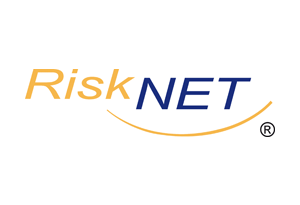The central theme of the RiskMap 2017 is the challenge to globalisation and free trade and how businesses can adapt and thrive in these changing times. Donald Trump’s triumph in the United States election is the biggest and loudest manifestation of a global trend in which voting publics no longer follow the trajectories political elites set for them and reject the economic orthodoxy. The RiskMap 2017, published by Control Risks, will shed light on this tumultuous world and help you see beyond the drama and hyperbole.
Richard Fenning, CEO, Control Risks, said: "The unexpected US election and Brexit referendum results that caught the world by surprise have tipped the balance to make 2017 one of the most difficult years for business’ strategic decision making since the end of the Cold War.
"The catalysts to international business – geopolitical stability, trade and investment liberalisation and democratisation – are facing erosion. The commercial landscape among government, private sector and non-state actors is getting more complex."
The high levels of complexity and uncertainty attached to the key political and security issues for the year, highlighted by RiskMap, mean that boards will need to undertake comprehensive reviews of their approaches to risk management.
Control Risks has identified the following key business risks for 2017:
- Political populism exemplified by President-elect Trump and Brexit. The era of greater national control of economic and security policy ushered in by the US election and Brexit provides increased uncertainty for business leaders. Caution prevails because of the lack of political policy clarity from the USA and UK and the impacts on the global trading and economic environment, as well as geopolitics. Political sparks will fly as the new presidency places pressure on the economic relationship between the US and China, vital for the stability of the global economy; and the US withdrawal from the Trans-Pacific Partnership threatens to redraw Trans-Pacific commerce. The calls across Europe for further referendums on EU membership is causing nervousness and populism in other parts of the world such as sub-Saharan Africa is adding fuel to investor risk.
- Persistent terrorist threats. The threat of terrorism will remain high in 2017 but become more fragmented. The eventual collapse of Islamic State’s territorial control in Syria and Iraq will lead to an exodus of experienced militants across the world. Responding to terrorism is becoming ever more difficult for businesses; risk adjustment is critical, including big data solutions and reviews of potential insider radicalisation, physical security and scenario planning.
- Increasing complexity of cyber security. 2017 will see the rise of conflicting data legislation: US and EU data protection regulations remain at odds; the EU’s Single Digital Market is isolationist; and China and Russia are introducing new cyber security laws. This will lead to data nationalism, forcing companies to store data locally, at increased cost, as they are unable to meet regulatory requirements in international data transfer. E-commerce will be stifled. Fears of terrorism and state sponsored cyber-attacks will exacerbate national legislation, adding burden to businesses.
- A potential brake on US regulation could lead to a transformation of the global regulatory environment. The US adherence to the Paris climate accords is under question, the Dodd-Frank Act could be modified substantially and the Foreign Corrupt Practices Act is not off limits, either. This could have a domino impact on regulation around the world.
- Intensifying geopolitical pressures driven by nationalism, global power vacuums and proxy conflicts. Syria, Libya, Yemen and Ukraine are likely to remain intractable conflicts and the Middle East will continue to be shaped by friction between Saudi Arabia and Iran; China’s increased focus on diplomacy and military influence will extend from Central Asia and the Indian Ocean to sub-Saharan Africa; and North Korea’s systematic nuclear capability development is upending a relatively static regional and global nuclear status quo.
Richard Fenning continued: "Digitalisation and the internet of everything take risk everywhere and the distinction between safe home markets and dangerous foreign ones has largely gone. The sheer mass of stored data, teetering on a fulcrum between asset and liability, has shifted the gravitational centre of risk.
"Terrorist attacks across continents in 2016 made possible in large part by the internet have shown that Islamist inspired violence can be planned and carried out anywhere in the world.
"With the seismic shift in risk scenario planning now required by businesses, we can expect the competitive playing field in many industries to see significant change as organisations respond in different ways to the multitude of complexities facing them."



